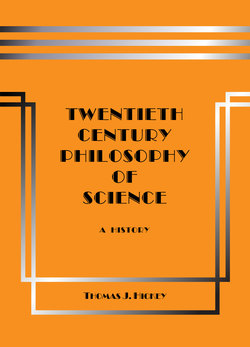Читать книгу Twentieth-Century Philosophy of Science: A History (Third Edition) - Thomas J. Hickey - Страница 29
На сайте Литреса книга снята с продажи.
Criticism:
ОглавлениеContemporary pragmatists recognize the empirical criterion as the only valid decision criterion that yields scientific progress.
On the pragmatist thesis of ontological relativity, semantics and ontologies can never trump the empirical criterion for criticism. Acceptance of ontologies is based upon empirical adequacy of a theory as demonstrated by empirical test outcomes. Thus contrary to romantics, pragmatists permit description of subjective mental states in social-science theories and explanations, but never require such description as a criterion for criticism. Or as Popper said, science is “subjectless”.
Pragmatists recognize the nontruth-functional hypothetical-conditional form of statement-schema for expressing proposed theories.
Pragmatists recognize the modus tollens falsifying argument for empirical testing of the theories.
Unlike the logical positivists, pragmatists do not recognize the Russellian truth-functional conditional logic for scientific criticism, because the logic of empirical testing is not truth-functional.
